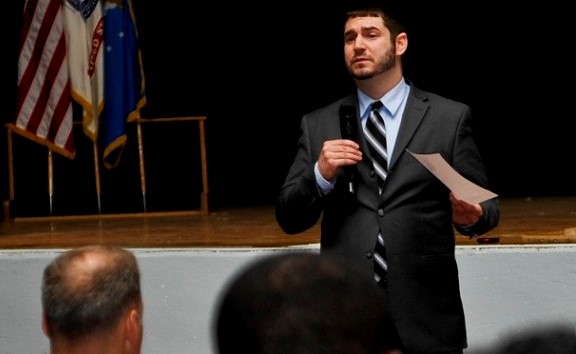The timing of this book launch & panel discussion could not have been better. While the people of our country don’t even need a cue to begin a political discussion, imagine the situation when it is right in the middle of the most awaited elections. Vijayendra Rao’s sneak peek into the rural socio-political setting to us urbanites was nothing less than an eye opener and if I might point out also lead to some amount of shame.
His research and study only validate how literacy, education and belonging to a more “privileged” section of the society have no role in ensuring higher participation and engagement in one’s civic and political life. Vijayendra through his book discussion attempts to build a case to portray the strength, awareness and willpower, the people in villages bring to collectively solve a given problem. He dramatically read out the many conversations verbatim from various meetings presided by the Gram Sabha of various parts of South India ranging from Bidar to Dharmapuri and Kasargod.
It was fascinating to understand how the effects of colonisation, state policy, local political influences and linguistics contributed to unique functioning and characterisation of the gram sabhas of different states. For example he spoke about how Kerala grama sabhas have a bureaucratic approach where they plan things to the T, while sabhas of Karnataka and Tamil nadu are lot more dynamic and often chaotic but still end up redressing issues and finding solutions. Nevertheless, what Rao truly wants to bring out through his book is how decentralising administrative capabilities will only help in furthering the interests of the country’s majority and contrary to popular belief how democratic ethos is strongly pursued and passed on as an oral tradition even amidst the least literate of our society.
This definitely poses a question to us city dwellers who have so much more infrastructure at our disposal but what are we doing? Krishna Byre Gowda – Minister for Rural Development and Panchayat Raj, Law & Parliamentary Affairs in Karnataka, highlighted the losing relevance of the panchayat and gram sabhas and the overall shift in focus from the Gandhian philosophy of decentralisation of political administration. He believes this model needs to be replicated in the urban circles as well and poses a question to citizens, municipalities and the amount of interest urban folks are taking in these matters.
The disparity in voter turnout itself can be considered as a superficial indicator to understand the engagement level of rural and urban Indians when it comes to civic participation. The very fact that the 74th Amendment mandates ward committee meetings to be conducted in a more regular and timely fashion in Bangalore is an indication that state policy intervention can help support and give voice to citizens and hopefully improve participation with a quid pro quo arrangement where citizens and state can hold each other accountable.
Image Courtesy – bangaloreinternationalcentre













